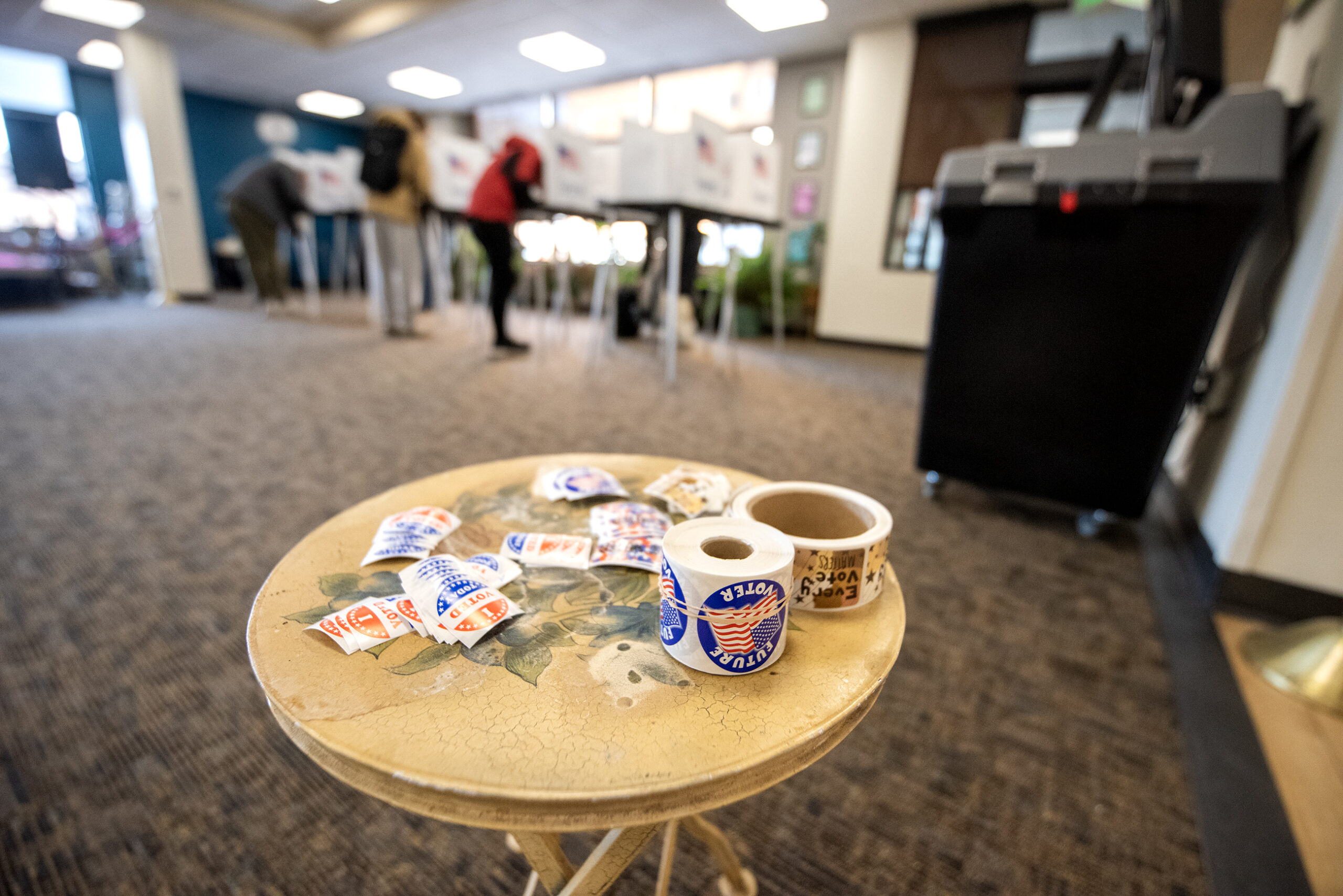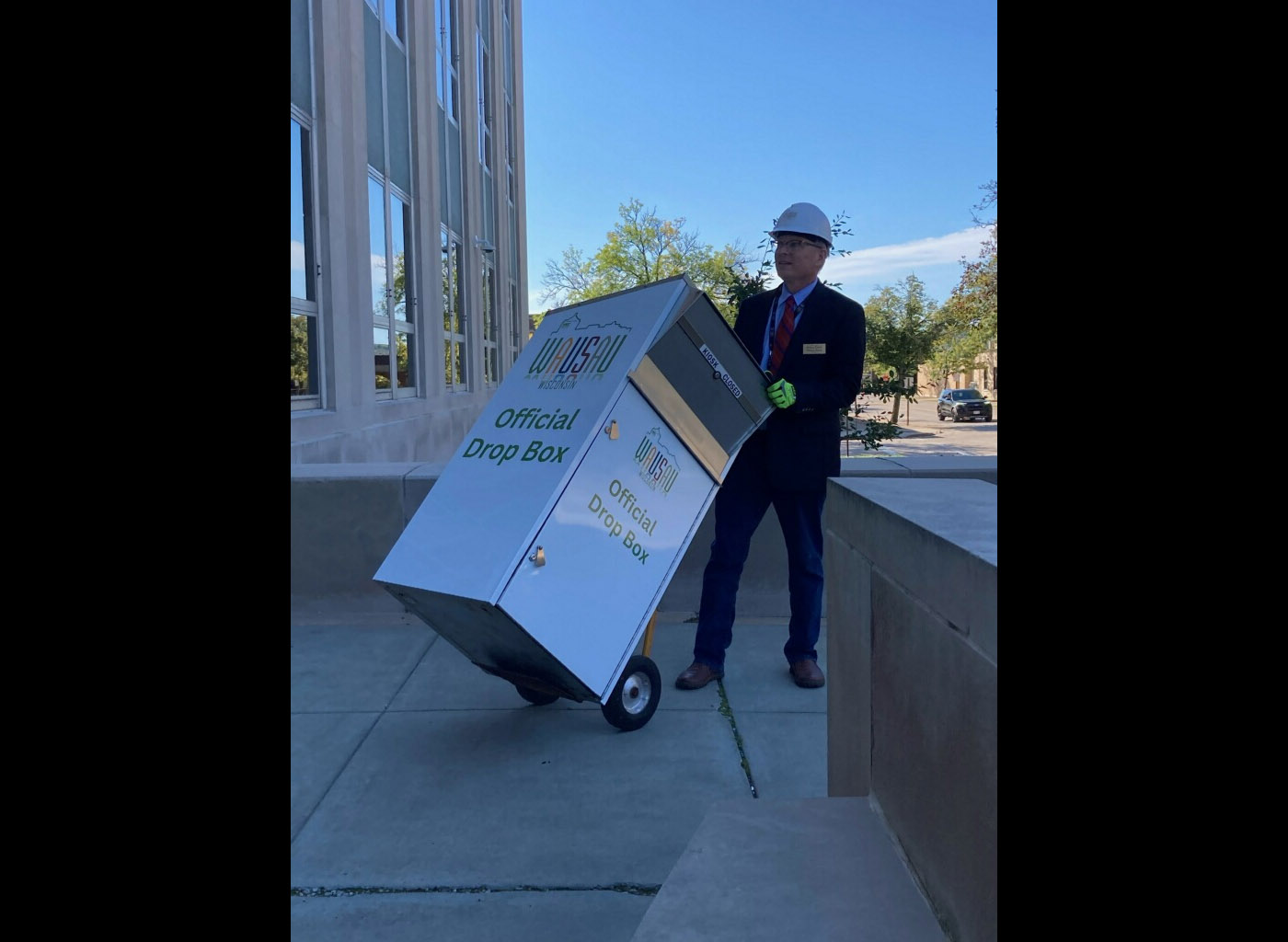The Wisconsin Supreme Court has denied a lawsuit by former Lt. Gov. Rebecca Kleefisch seeking to overturn guidance from the state’s elections agency on absentee ballot drop boxes, polling places and voting in nursing homes.
The 4-3 ruling by the court against Kleefisch, who is running for governor, comes as justices are already considering a separate lawsuit challenging the use of drop boxes in Wisconsin.
It was the latest in a series of election cases where conservative Justice Brian Hagedorn provided the swing vote, joining the court’s liberals to reject Kleefisch’s original action petition. The court’s majority did not issue a written order accompanying its decision.
News with a little more humanity
WPR’s “Wisconsin Today” newsletter keeps you connected to the state you love without feeling overwhelmed. No paywall. No agenda. No corporate filter.
The court’s other three conservatives dissented, with conservative Justice Patience Roggensack writing that the court had “sidestepped” its responsibility.
“The legality of absentee ballot guidance from (the Wisconsin Elections Commission) has been simmering since 2020, and will likely continue until we thoroughly address absentee ballot issues generated by WEC,” Roggensack said. “Because Wisconsin voters deserve elections conducted in a manner that we have reviewed and approved, I would grant Kleefisch’s petition to commence an original action.”
Kleefisch filed the lawsuit last year as an “original action petition,” asking the state’s highest court to take the case immediately and bypass the lower courts. While it’s unclear why justices rejected her petition, the court has been more reluctant to accept original action petitions since Hagedorn rose to prominence.
Kleefisch’s lawsuit argued that the Wisconsin Elections Commission went beyond what state law allowed in terms of absentee ballot drop boxes, polling place locations and voting in nursing homes
She specifically argued that Wisconsin law did not allow for the use of drop boxes in Wisconsin, the same argument being pushed by the conservative Wisconsin Institute for Law and Liberty, or WILL, in a separate case currently pending before the court. While a lower court ruled in favor of WILL in that lawsuit, the Supreme Court ordered that drop boxes remain an option for the Feb. 15 primary while it considers the case.
Kleefisch issued a written statement Friday criticizing the court’s order.
“It is a truly sad day when our state’s highest court refuses to uphold the law,” read the statement from Kleefisch. “I am committed to ensuring the integrity of our elections and making sure our laws are followed because clearly no one else will. To be continued.”
Democratic Attorney General Josh Kaul, whose Wisconsin Department of Justice defended the elections commission, issued a statement celebrating the ruling.
“Ballot drop boxes provide voters with a secure, accessible method for casting their ballot,” Kaul said. “This common-sense option for voting should remain available to Wisconsinites.”
The liberal firm Law Forward, which also opposed Kleefisch’s lawsuit, called the court’s decision a “win for the rule of law.” Law Forward attorney Jeff Mandell noted that the dropbox issue was already before the court in the WILL lawsuit.
“We’re actively defending the right to vote in that case, and we’ll continue to do so across the board,” Mandell said.
Other issues raised in Kleefisch’s lawsuit highlighted Wisconsin Elections Commission policies that were scrutinized in a Legislative Audit Bureau report released in October.
Her lawsuit argued that the agency’s March 2020 guidance directing nursing homes to have residents vote by mail with the help of facility staff, rather than with the help of in-person “special voting deputies,” violated state law.
It also contended that the elections commission acted unlawfully when it said local clerks could consolidate their number of polling places ahead of the April 2020 election. In Milwaukee and Green Bay, polling place closures brought on by a lack of available staff led to long lines for voters.
The state Supreme Court’s order comes days before a state Senate panel is set to consider a package of 10 bills that would change Wisconsin election laws. The proposals face likely vetoes by Democratic Gov. Tony Evers.
Wisconsin Public Radio, © Copyright 2026, Board of Regents of the University of Wisconsin System and Wisconsin Educational Communications Board.






